|
|
A monthly publication of Pure Energy Rx www.pureenergyrx.com Service Voice Mail: 620-399-7462 | 03.05.2007 |
 Hey everybody,
Hey everybody,
Springtime air is out and about and maybe, just maybe, spring is on its way! Here is a great solution for a weed barrier, as we all begin to think towards spring and the pending weed growth that is so much a part of organic, no-herbicide gardening. Use newsprint saved up from over the fall and winter! Place your old newspaper over the flowerbeds, underneath your compost debris, mushroom mulch or bark dust, it will act as a weed barrier and decompose over time. I have been doing this for years, in the flower beds, mind you (I would not suggest in the vegetable garden as the inks in newsprint can be toxic). This will cut down on your weeding time during the spring and summer months, add to the quality of your dirt and not place toxic herbicides into Mother Earth. Do you have a paper shredder? Every household should. I toss the shredded paper into my compost pile periodically throughout the winter months. Paper breaks down quickly and again as long as the compost goes on the flowerbeds, it is a great way to re-cycle all of your surplus paper debris during the year. Stirring up the chi for the pending spring months. We have all been cooped up for the winter months, so as the weather allows, open those windows and doors and let the fresh air and spring chi fill your home. My garden has plenty of parsley, rosemary and sage to clip, so bring inside the scent of newly cut herbs in bright, textured filled bouquets placing in stagnant areas of the home and office to lighten up your space, and get the energy moving. De-cluttering shelves, closets and the dreaded garage! This is the time of year to do it, before all of your free time is spent in the yard or enjoying summertime activities. If you have not used it or worn it for over a year, maybe it needs to find a new home. Take on the task one drawer or closet at a time--you will not only free up your space, but move out the old stagnant energy for something new and exciting. Clean out the refrigerator, dust off the cupboards, handle the hallway closet, make it fun and set a deadline for completion. In vibrant health,
Herbal Accelerator to make good on those resolutions...
Speed up that after-holiday weight loss with Herbal Acclerator. And to help you do that, we're offering a 2-4-1 SALE. Buy one Herbal Accelerator ($28), and get TWO! We recommend using this formula alongside our recommended Body Type formulas determined from our Body Type Survey.
Fear: Friend or Foe?...
Lead researcher Bob Stickgold, professor of psychiatry at the Harvard Medical School, said: "We're not just stabilising memories during sleep. We're extracting the meaning. Sleep helps us extract rules from our experiences. It's like knowing the difference between dogs and cats, even if it's hard to explain."
The US research team studied how well participants remembered connections between words and symbols. They compared how they fared if they had had a sleep between seeing the words and having the test, and if they had not slept. They found that people were better able to recall lists of related words after a night's sleep than after the same time spent awake during the day. They also found it easier to recollect themes that the words had in common. But they forgot around one in four more themes if they had been awake.
In another experiment, people were shown cards bearing symbols, followed by descriptions of a particular weather condition. In the test, a diamond shape might be followed by rain for 70 per cent of the time. Twelve hours after training, participants felt able to predict the weather based on the symbol shown to them on a card. But after they had slept, their predictions were 10 per cent better.
Last year it was shown that taking a daytime nap helped boost the memory and make it easier to recall important facts. Another study showed that men's brainpower can be reduced if they share a bed, because their sleep is more disturbed. Middle-aged people are at an increased risk of high blood pressure if they sleep for less than five hours a night -- and afternoon naps cut the risk of heart disease.
"It's only relatively recently that we've begun to understand the extent to which sleep helps you remember. "What we know now is that sleep serves the function of a tidying process. "The brain is highly organised when it comes to memories--it doesn't just chuck everything into the bottom drawer..."
Eric Kandel, 77 years old, who shared the 2000 Nobel Prize in medicine, maintains an active lab at Columbia University and mentors younger scientists. "I think I do science better than I did when I was younger," he says. "In science, judgment is so important, and I now have a better understanding of which problems are important and which aren't."
Discoveries of brain functions that hold up, or even improve, through the decades could affect corporate and public policy. As baby boomers age, many are resisting mandatory retirement. In January, a special committee of the New York State Bar Association recommended that law firms abandon the practice. Air-traffic controllers are asking federal agencies to reconsider the requirement that they retire at age 55, and the Federal Aviation Administration in January proposed increasing the mandatory retirement age for commercial pilots--currently 60.
The emerging neuroscience is on their side. One of the most robust cognitive abilities is semantic memory, which is recollection of facts and figures. "Semantic memory is relatively resistant to the effects of aging," says psychology professor Arthur Kramer of the University of Illinois, Urbana-Champaign. Semantic memory includes vocabulary, which increases with age so reliably (at least in people who continue reading) that a younger person should never challenge a sharp 75-year old to a crossword puzzle.
While younger brains solve problems step-by-step, older brains call on cognitive templates, those generic outlines of a problem and a solution that worked before. As a result, older professionals can readily separate what's important from what's not, a big reason so many of them fire on all cognitive cylinders well past age 65. "I'd say that the ability to make a significant contribution as a lawyer actually increases with time, experience and age," says attorney Mark Zauderer, 60, a partner in a New York law firm.
The benefits that come to the mind and brain with age extend beyond thinking. They also include a greater ability to put yourself in another person's mind, empathizing and understanding his thought processes--emotional wisdom. Civil engineer Samuel Florman, 81, remains active in his Scarsdale, N.Y., construction company and says that as he has grown older, he "has gotten better with people, more understanding of young people and more patient with aggressive ones. I'm more savvy about when to rush and when not to."
The PEITC in watercress and other cruciferous vegetables is believed to inhibit the activation of an enzyme that's necessary for cancer to thrive. Researchers at the Northern Ireland Centre for Food and Health (University of Ulster) recently put watercress to the test with an intervention study.
Sixty healthy adults with an average age of 33 were recruited, half of the subjects were cigarette smokers. The subjects were given 85 grams of raw watercress to include in their regular diets each day. Blood samples were then taken before and after the eight-week trial period. Researchers measured several biomarkers related to cancer risk, including DNA damage to lymphocytes, activity of detoxifying enzymes, antioxidant levels, and lipid levels.
Researchers found that DNA damage to white blood cells dropped by more than 20 percent, on average levels of lutein (an antioxidant) increased by 100 percent; on average, levels of beta-carotene (an antioxidant) increased by one-third
On average, levels of triglycerides dropped by 10 percent These changes were most pronounced among smokers, whose antioxidant levels were much lower than non-smokers at the outset of the study. Professor Ian Rowland, leader of the study, told the BBC: "Blood cell DNA damage is an indicator of whole body cancer risk, and the results support the theory that consumption of watercress is linked to an overall reduced risk of cancer at various sites in the body." (Thanks to HSI)
Transition: If you're not ready to give up meat completely, start by eating meatless meals one or two days a week. The Johns Hopkins School of Public Health, Columbia University's School of Public Health, and other public health schools have designed a "Meatless Monday" campaign to help Americans avoid our four top killers--heart disease, stroke, diabetes, and cancer -- by eating meat-free at least every Monday. The "Meatless Monday" program provides recipes, meal plans, nutritional guidelines, cooking tips, and more.
Give Up the Little Animals First: Although many people tend to stop eating red meat before they give up chicken, turkey, or fish, from a humane standpoint, this is backwards. Birds are arguably the most abused animals on the planet, and birds and fish yield less flesh than cows or pigs, so farmers and fishers kill more of them to satisfy America's meat habit. If you choose to give up meat in stages, stop eating chickens and turkeys first, then fish, and then pigs and cows. Some will suggest that cattle are the worst for the environment, but that seems like hair-splitting to me. The Amazon rain forest is being cut down to grow soybeans to feed chickens; it's chicken and pig farms that are poisoning the Atlantic Ocean.
If You Can't Give Up One Particular Animal Product, Give Up All the Other Ones: One friend told me that he just loves burgers too much to give them up; I suggested that he give up all animal products except burgers. Some of my friends can't give up ice cream or cream in their coffee or whatever--so give up everything but that.
Examine Your Diet, and Substitute: Take a look at the meals that you and your family already enjoy, and you'll probably notice that many of them can be made without any meat or with mock meats (which are great transition foods) instead of animal flesh. For example, instead of spaghetti and meat sauce, make spaghetti and marinara sauce, or instead of beef burritos, try tasty bean burritos.
Eating Out: If you're eating out, there are countless restaurants that cater to vegetarians and vegans. VegCooking.com features regional vegetarian restaurants, restaurant chains that offer vegetarian options, and links to other Web sites that list vegetarian-friendly eateries. Ethnic restaurants, especially Thai, Indian, Ethiopian, Chinese, and Mexican restaurants, are always a good choice, as they offer a variety of vegetarian and vegan options.
Don't Sweat the Small Stuff: Vegans and vegan wannabes, I believe that when you're eating out, you also shouldn't be too concerned about ingredients that make up less than 2 percent of your meal. You'll obviously want to avoid dishes served with meat, cheese, or eggs, but it doesn't really matter if there's a modicum of butter or whey or other animal product in the bun that your veggie burger is served on...
Earlier this week, Britain's Prince Charles suggested during a visit to the Imperial College London Diabetes Center in Abu Dhabi that McDonald's, often criticized over its high-fat menu choices, should be banned. "Have you got anywhere with McDonald's? Have you tried getting it banned? That's the key," the prince said to a nutritionist at the center.
"The comment made by the Prince of Wales appears to be an off-the-cuff remark that, in our opinion, does not reflect either our menu or where we are at as a business," Nick Hindle, a spokesman for McDonald's UK business, said in an e-mailed statement.
A spokesman for Britain's Prince Charles said "he was keen to emphasize the need for children to enjoy the widest variety of food and not to eat any particular sort of food to excess." Britain's Prince Charles has long been an advocate of organic food, running an organic farm on his home estate. Late last year, he published a cookbook in which he aimed to rebel against what he called the "soulless, mass-produced food that had come to dominate the modern diet."
But McDonald's said the future king was "clearly unaware of some of the moves we have made over time to improve choice and variety on our menu ... including the introduction of fruit, carrot sticks, salads and organic milk." The hamburger chain added that it has "made great progress in support of sustainable agriculture."
Ed. comment: Ten years ago, McDonald's would surely be surprised at it's own response!
Michael, a psychologist, was managing homeless shelters in Central California, when an idea struck him. Why not give vitamins to children living on the street? Maybe it would fortify them and protect them from illness. He tried it, and the results were so striking that he was asked to start a nonprofit vitamin program for homeless kids.
Today, just 7 years later, Mary and Michael run Vitamin Relief USA, providing daily vitamins to 28,000 at-risk children at over 500 sites in 39 states. It also provides daily multi-vitamins to over 3,300 low-income seniors and calcium to 14,000 seniors across the U.S. Mary and Michael find out who needs help, then get manufacturers to ship vitamins directly to agencies and schools.
Ruleville Elementary School of Ruleville, Mississippi was placed on probation by the state for low test scores. Principal Bessie Gardner estimated that two thirds of her students received no food at home, relying solely on the schools' breakfast, lunch and afternoon snack programs. Suspecting malnourishment was the cause, she applied to Vitamin Relief USA. The school was granted a supply of chewable multivitamin/minerals for the children. Each school day before lunch, the school staff distributed vitamins to the students. Bottles of vitamins were also given to parents so children could take vitamins at home.
"The parents who didn't want to comply, I challenged them," said Ms. Gardner. "I told them to take the vitamins themselves - just double the dose--and they'd see for themselves how much good these vitamins can do." Mary said parents were convinced when they saw their own behavior improve. People who worked night shifts reported that they had more energy and stopped falling asleep at work. Children's behavior improved too, as did their self-esteem and their overall health.
After three years of taking vitamins, students at Ruleville are no longer on probation. Many children who'd resisted doing their homework are now acing their tests and asking for more books to read. Thanks to Mary and Michael Morton, tens of thousands of kids have turned their lives around and are looking forward to a brighter future.
Nature's First Food boasts an incredible array nutrient-dense, mineral-rich superfoods including powdered vegetables, algae and aquatic vegetables, as well as a highly-advanced probiotic (friendly bacteria) formula. This product was developed exclusively for Nature's First Law by one of the world's leading superfood authorities, Dr. Jameth Sheridan (N.D.). Nature's First Food has been formulated with a unique understanding of lifeforce energy, enzymes, raw foods, Mother Nature and true science, with a reverence for all life.
Nature's First Food is designed to be taken on a daily basis and especially during cleansing. Contains 100% raw, organic and/or wildcrafted superfoods, the best probiotic formulation ever put into a superfood formula (designed to implant good bacteria in the intestines) and a full digestive enzyme complex. Nature's First Food comes to you as a neutral-tasting, whole-food, green powder. It can be added to smoothies and juices. This product contains no fillers. It is available in an amber glass bottle with a metal lid and oxygen absorber for optimum nutrient preservation. >>> ORDER
|
| |||||||||||||
| |||||||||||||
|
HOME > ARCHIVES > BLOG > SUBSCRIBE
This newsletter is registered with Published.com NOTE: Your email address is strictly between us. We never sell or rent our subscriber list! This newsletter was sent to you from Boyd Martin, webmaster for Pure Energy Rx, Pure Energy Rx,Wellington, KS 67152, Service Voice Mail: 620-399-7462 . | |||||||||||||


 To lose those extra pounds:
To lose those extra pounds:
 Fear can run your life, or you can use fear to as a valuable tool. Our resident Life Coach and Synergy Specialist, Charly Emery, tells the story of her phantom shark attack, and what it taught her about harnessing the energy of fear to discover more about self, and to help navigate the sometimes treacherous waters of life. "When you delve deeper, swimming underneath the initially murky realm of fears' first physical or emotional pinches," says Charly, "you'll be amazed to discover a dry sun-soaked treasure trove of information just waiting for you to uncover, process and utilize for your greatest good." >>>>
Fear can run your life, or you can use fear to as a valuable tool. Our resident Life Coach and Synergy Specialist, Charly Emery, tells the story of her phantom shark attack, and what it taught her about harnessing the energy of fear to discover more about self, and to help navigate the sometimes treacherous waters of life. "When you delve deeper, swimming underneath the initially murky realm of fears' first physical or emotional pinches," says Charly, "you'll be amazed to discover a dry sun-soaked treasure trove of information just waiting for you to uncover, process and utilize for your greatest good." >>>> 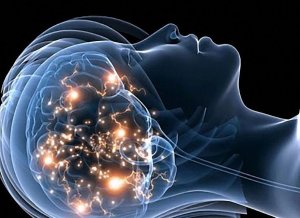 If you're facing a problem you can't get your head around, you might be told to sleep on it. Now scientists have shown that the advice is more than just an old wives' tale. Apparently sleep strengthens the memory and helps the brain extract themes and rules from the masses of information we soak up during the day.
If you're facing a problem you can't get your head around, you might be told to sleep on it. Now scientists have shown that the advice is more than just an old wives' tale. Apparently sleep strengthens the memory and helps the brain extract themes and rules from the masses of information we soak up during the day.
 An emerging body of research shows that a surprising array of mental functions hold up well into old age, while others actually get better. Vocabulary improves, as do other verbal abilities such as facility with synonyms and antonyms. Older brains are packed with more so-called expert knowledge -- information relevant to your occupation or hobby. (Older bridge enthusiasts have at their mental beck-and-call many more bids and responses.) They also store more "cognitive templates," or mental outlines of generic problems and solutions that can be tapped when confronting new problems.
An emerging body of research shows that a surprising array of mental functions hold up well into old age, while others actually get better. Vocabulary improves, as do other verbal abilities such as facility with synonyms and antonyms. Older brains are packed with more so-called expert knowledge -- information relevant to your occupation or hobby. (Older bridge enthusiasts have at their mental beck-and-call many more bids and responses.) They also store more "cognitive templates," or mental outlines of generic problems and solutions that can be tapped when confronting new problems.
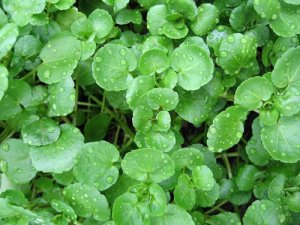 What rabbits, hamsters, and your average carnivores don't know is that watercress delivers plenty of calcium, as well as good amounts of vitamin C, folic acid, potassium, beta-carotene, and iron. In addition, watercress is one of the best sources of phenylethyl isothiocyanate (PEITC). This compound doesn't quite have the household-word status of those other nutrients, but it just might turn out to be the most valuable component of watercress.
What rabbits, hamsters, and your average carnivores don't know is that watercress delivers plenty of calcium, as well as good amounts of vitamin C, folic acid, potassium, beta-carotene, and iron. In addition, watercress is one of the best sources of phenylethyl isothiocyanate (PEITC). This compound doesn't quite have the household-word status of those other nutrients, but it just might turn out to be the most valuable component of watercress.
 One of our friends and mentors,
One of our friends and mentors, 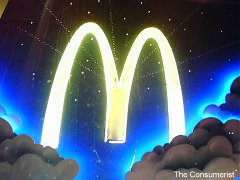 LOS ANGELES (Reuters) - Memo from McDonald's Corp. to the Prince of Wales: We are not amused. McDonald's said on Wednesday it was disappointed by Britain's Prince Charles' statement that the hamburger chain should be banned, adding that the heir to the British throne was unfamiliar with its recent efforts to introduce healthier fare.
LOS ANGELES (Reuters) - Memo from McDonald's Corp. to the Prince of Wales: We are not amused. McDonald's said on Wednesday it was disappointed by Britain's Prince Charles' statement that the hamburger chain should be banned, adding that the heir to the British throne was unfamiliar with its recent efforts to introduce healthier fare.
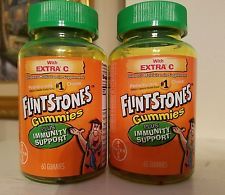 "Malnourished children are angry children... Any little thing would set them off," says Principal Bessie Gardner of Ruleville Elementary School, Mississippi. But, they're not angry anymore. In fact, they're blossoming thanks to Mary and Michael Morton, founders of Vitamin Relief USA.
"Malnourished children are angry children... Any little thing would set them off," says Principal Bessie Gardner of Ruleville Elementary School, Mississippi. But, they're not angry anymore. In fact, they're blossoming thanks to Mary and Michael Morton, founders of Vitamin Relief USA.
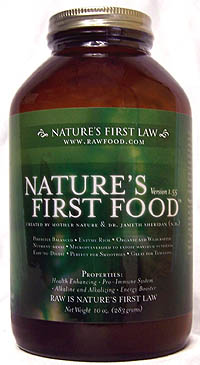



 RSS Feed
RSS Feed Add to My Yahoo!
Add to My Yahoo!